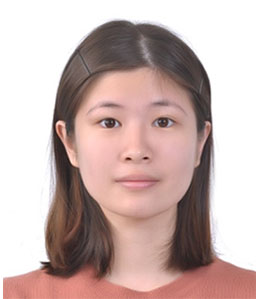Research introduction
Cell growth is a fundamental process for biological systems; it is supported by underlying metabolic fluxes. Cells must balance their biomass synthesis and energy consumption to achieve efficient growth; furthermore, when environmental changes cells could maintain their homeostasis by re-adjusting growth rate and metabolism. We use experimental, computational, and theoretical approaches to study the dynamic interplay between growth and metabolism.
Metabolic dynamics at single-cell level
Measuring cellular metabolism in real-time has been challenging in experiments. We combined microfluidic culture system, metabolic biosensors, fluorescence microscopy and quantitative image analysis for our study. We showed that the ATP concentration in E. coli cells varies along cell cycles, and this periodic dynamics depends on acetate fermentation (Lin and Jacobs-Wagner, 2022). At the single cell level, fluctuation of ATP is negatively correlated with single-cell growth rate, indicating the importance of metabolic homeostasis. In the future, we will explore the dynamical regulations of various metabolites under genome perturbation and nutrient changes. We are also interested in metabolism of cell-cell interaction within microbial communities.
Time-lapse measurements of ATP level in E. coli. Cells inside the microfluidics device were arranged along the linear chamber. In the colored figure, each column represents one time point and ATP levels are represented by colors. Under normal exponential growth the ATP level exhibits oscillatory dynamics between 1 to 4 mM.
Mathematical models for reaction networks and autocatalytic systems
Biological systems are often nonlinear and far away from equilibrium. Understanding the nature of growth and expansion is the common focus in systems biology, biophysics, and mathematical biology. We developed a theoretical framework based on scalable flux functions and reaction networks for analyzing an entire class of exponential-growing systems. Our modeling ability was extended from classical balanced growth to oscillatory and even chaotic growth modalities (Lin et. al., 2020). In the future, we are interested in analyzing autocatalytic systems with concepts from various disciplines, including ergodic theory, time-delay system, and nonequilibrium physics.
Recruitment
Our lab is recruiting members from all levels, including postdoc researchers, PhD and master students, and research assistants. Please see the following links for detail information or contact Dr. Lin by email. (postdoc,research assistants)
- Postdoc researcher, 2021-2023, Stanford University
- Postdoc researcher, 2016-2020, Yale University
- PhD in Biology, 2008-2015, New York University
- Bachelors in Life Science/Physics (double major), 2002-2007, National Taiwan University
As corresponding author:
- Biomass transfer on autocatalytic reaction network: a delay differential equation formulation. Wei-Hsiang Lin (2026) https://arxiv.org/abs/2210.09470v4
As first author:
- Connecting single-cell ATP dynamics to overflow metabolism, cell growth and the cell cycle in Escherichia coli. Wei-Hsiang Lin and Christine Jacobs-Wagner (2022) Current Biology 32(18):3911-3924
- Origin of exponential growth in nonlinear reaction networks. Wei-Hsiang Lin*, Edo Kussell, Lai-Sang Young and Christine Jacobs-Wagner* (2020) Proceedings of the National Academy of Sciences 117 (45), 27795-27804 (*: Co-corresponding author)
- Complex interplay of physiology and selection in the emergence of antibiotic resistance. Wei-Hsiang Lin and Edo Kussell (2016) Current Biology 26(11):1486-1493
- Populations adapt to fluctuating selection using derived and ancestral allelic diversity. Wei-Hsiang Lin, Mark J. Rocco, Amelia Bertozzi-Villa, Edo Kussell (2015) Evolution 69(6):1448-1460
- Evolutionary pressures on simple sequence repeats in prokaryotic coding regions. Wei-Hsiang Lin and Edo Kussell. (2012) Nucleic Acid Research 40(6):2399-2413
As co-author:
- DNA/polysome phase separation and cell width confinement couple nucleoid segregation to cell growth in Escherichia coli. Alexandros Papagiannakis, Qiwei Yu, Sander K Govers, Wei-Hsiang Lin, Ned S Wingreen, Christine Jacobs-Wagner (2025) eLife https://doi.org/10.7554/eLife.104276.1
- Genome concentration limits cell growth and modulates proteome composition in Escherichia coli. Jarno Mäkelä, Alexandros Papagiannakis, Michael C. Lanz, Wei-Hsiang Lin, Skye Glenn, Matthew Swaffer, Georgi K. Marinov, Jan M. Skotheim, Christine Jacobs-Wagner (2024) eLife doi.org/10.7554/eLife.97465.3.sa0
- Coupling of cell growth modulation to asymmetric division and cell cycle regulation in Caulobacter crescentus. Skye Glenn, Alessio Fragasso, Wei-Hsiang Lin, Alexandros Papagiannakis, Setsu Kato, and Christine Jacobs-Wagner (2024) Proceedings of the National Academy of Sciences 121 (41) e2406397121
- Nak regulates localization of clathrin sites in higher-order dendrites to promote local dendrite growth. Wei-Kang Yang, Yu-Huei Peng, Hsun Li, Hsiu-Chen Lin, Yu-Ching Lin, Tzu-Ting Lai, Hsien Suo, Chien-Hsiang Wang, Wei-Hsiang Lin, Chan-Yen Ou, Xin Zhou, Haiwei Pi, Henry C. Chang and Cheng-Ting Chien12 (2011) Neuron. 72(2):285-299
- CSN-mediated deneddylation differentially modulates Ci155 proteolysis to promote Hedgehog signaling responses. June-Tai Wu, Wei-Hsiang Lin, Wei-Yu Chen, Yi-Chun Huang, Chiou-Yang Tang, Margaret S. Ho, Haiwei Pi & Cheng-Ting Chien (2011) Nature Communications 2(1):1-9
- Nak regulates Dlg basal localization in Drosophila salivary gland cells. Yu-Huei Peng, Wei-Kan Yang, Wei-Hsiang Lin, Tzu-Ting Lai and Cheng-Ting Chien (2009) Biochem Biophys Res Commun., 382(1):108-113.
Insight/Review articles:
- Probing the proteome: Raman spectroscopy can be used to predict cellular physiology and proteome composition in E. coli. Wei-Hsiang Lin and Chia-Liang Cheng (2026) eLife https://doi.org/10.7554/eLife.110102
 |
Principal investigator Wei-Hsiang Lin (林暐翔) |
Single-cell metabolism, microfluidic culture, Autocatalytic theory in dynamical system. |
 |
Postdoctoral Scholar of Academia Sinica Nathan Muyinda (穆英達) |
Theoretical ecology on species coexistence dynamics, intransitive competition, and community growth. |
 |
Postdoctoral associate Ander H. Plagaro (安德) |
Metabolic and growth regulation of glycolytic enzymes |
 |
Postdoctoral associate Ritwika Mondal (麗薇卡) |
Mathematical Biology on dynamics of species interaction and food web. |
 |
Master’s level research assistant Ku-Pin Lee (李固斌) |
Design and manufacture of microfluidic culture system. |
 |
Master’s level research assistant Agatha Cecila Sihite (西莉亞) |
Studying cell growth and energetics response under metabolic perturbation. |
 |
Master's level research assistant Udhaya Bala Kanna (吳德亞) |
Studying acetate fermentation and cellular physiology with fluorescence biosensors. |
 |
Master's level research assistant Hsin-Yao Feng (馮信堯) |
Agent-based modeling in metabolic and population dynamics. |
 |
Master student Pin-Hsien Hsieh (謝品嫻) |
Studying overflow metabolism and metabolic dynamics in E. coli |
Updated on 2026 Feb 2nd.
